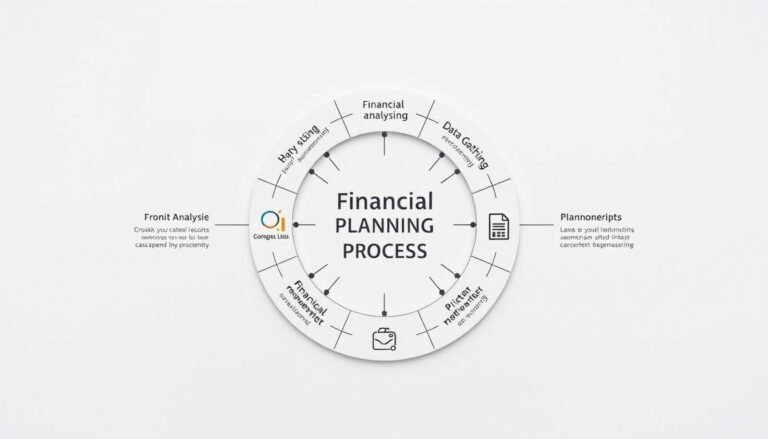Negotiation Skills 101: Tips for Success in Professional and Personal Interactions
Negotiation skills are key for doing well at work and in life. If you’re talking money or plans with your team, clients, or friends, it’s good to know how to talk your way to success. We’ll dive into skills like clear communication, how to solve problems, and how to make others see your point.
Key Takeaways:
- Effective communication is crucial for successful negotiation.
- Conflict resolution techniques can help find mutually acceptable solutions.
- Utilize persuasive tactics to influence and convince others.
- Win-win strategies aim to create mutually beneficial outcomes.
- Bargaining techniques can be employed to reach favorable agreements.
The Importance of Negotiation in Various Settings
Negotiation is essential in many areas of life. This includes work, making deals, and your personal life. Having good negotiation skills helps you solve problems, make good deals, and get what you want.
At work, these skills are vital. You need them for team projects, setting goals with your boss, and making deals. Using negotiation well can improve how you work with others and make the work environment better.
When it comes to business deals, negotiations are key. You often talk about prices, terms, and how to work together. Knowing how to negotiate can help companies get good deals and make strong partnerships.
Good negotiation is important at home too. It helps with sharing chores, talking about money with your family, or solving fights with friends. Negotiating properly can make personal relationships healthier and more peaceful.
“Negotiation skills are a key component of achieving win-win agreements in various professional and personal scenarios.”
Also, negotiations are key in legal matters like settling disputes. Lawyers use these skills to help their clients, sort out legal issues, and reach agreements. Negotiation helps in many legal steps.
Benefits of Negotiation Skills in Different Contexts:
| Context | Benefits of Negotiation |
|---|---|
| Workplace | Improved collaboration and conflict resolution, effective communication, and enhanced job satisfaction. |
| Business Deals | Ability to secure favorable terms, build business relationships, and achieve mutually beneficial outcomes. |
| Personal Relationships | Improved communication, resolution of conflicts, and the fostering of healthier and more harmonious connections. |
| Legal Proceedings | Facilitating settlements, advocating for clients, and reaching favorable resolutions. |
In conclusion, knowing how to negotiate is important in many areas. It brings lots of benefits in the workplace, with deals, personal life, and law. By learning to negotiate well, you can do better in every part of your life.
Key Techniques for Effective Negotiation
To be a good negotiator, you need the right skills. This helps you in tough talks and in getting what you want. It’s all about thinking smart, understanding emotions, being ready, and listening well.
Strategic thinking is key. It helps you set clear goals and figure out what you want. Looking at different choices helps you plan a smart way to get what you need.
Emotional intelligence is important too. It means knowing your feelings and those of others. This can make talks go smoother. It helps build trust and find common ground.
Preparation is a must. You should know your stuff before you negotiate. Being ready puts you ahead. It helps you talk about your position strongly and deal with challenges.
Active listening also matters. It’s about really hearing the other side. Understanding their point of view helps you solve problems together.
Problem-solving and adaptability are vital. Being able to think creatively and change your strategy is useful. This can lead to agreements that work well for everyone.
Don’t forget about being ethical. Always play fair and respect others. It’s important for how others see you and for future deals.
Using these skills can really help you negotiate well. With a smart plan, caring about how others feel, being ready, listening, and being open to solutions, you can reach good agreements.
Example Table: Summary of Key Techniques
| Technique | Description |
|---|---|
| Strategic Thinking | Defining goals and understanding desired outcomes |
| Emotional Intelligence | Understanding and managing emotions |
| Preparation | Gathering relevant information and understanding case strengths and weaknesses |
| Active Listening | Establishing clear communication and empathy |
| Problem-Solving | Identifying creative solutions and overcoming obstacles |
| Adaptability | Navigating changing circumstances |
| Ethical Considerations | Upholding professional standards and fairness |
Overcoming Obstacles in Negotiation
Negotiation can be tough with various hurdles to clear. High-stakes situations can bring intense pressure. Yet, with thorough preparation and knowledge, you can face them, boosting your chances of success.
Dealing with tough opposing counsel is a common hurdle. Skilled, aggressive lawyers require you to level up and use smart strategies. It’s key to stay professional, fight for your client, and respond with solid points and evidence.
Communication obstacles are also common. It might be due to different languages or cultural norms. To bridge these gaps, you must listen actively and speak clearly. Understanding the other party’s view can make negotiations more productive.
Also, ethics and integrity are critical. All parties must aim for fair, open negotiations. This ensures better results for all involved.
A stumbling block can be a deadlock or no progress situation. It’s vital then to find new strategies. Being persistent, patient, and creative can restart negotiations.
Overcoming Obstacles in Negotiation: A Case Study
“In a recent mediation session, the opposing counsel’s aggressive tactics made it tough. Despite this, we stayed calm, argued well, and focused on our client’s needs. This shift led to a deal that worked for both sides. Open, respectful talks helped us get past the initial stalemate to success for our client.”
Strategies for Overcoming Common Obstacles in Negotiation
- Thoroughly prepare and gather relevant information before negotiations
- Maintain professionalism and push for your client’s needs against tough opponents
- Use active listening and clear speaking to overcome culture and language barriers
- Handle questionable actions with integrity and a sense of what’s right
- Look into new strategies and options when negotiations hit a standstill
By using these methods and staying flexible, negotiators can tackle obstacles and achieve success.
The Role of Negotiation in the Legal Profession
In the legal world, negotiation is key. Lawyers use their skills to solve disputes, help their clients, and close deals. They aim to find common ground for everyone to benefit, all while following the law.
A crucial part of negotiation is problem-solving. Lawyers study complex legal problems, spot roadblocks, and come up with smart ways to meet their clients’ needs. This approach helps them get the best results.
Good communication is vital for negotiations. Lawyers must clearly and convincingly talk about what their clients want. They also need to listen well and understand what the other side is saying. This helps in finding agreements and building trust.
“Negotiation is not about winning or losing, but about finding mutually satisfactory agreements.”
– Unknown
Lawyers are also champions for their clients. They should know what their clients care about and represent them strongly. This means always working to protect their clients’ legal rights and goals.
No matter the case, lawyers aim to get the best deal for their clients. This could be in a personal injury lawsuit, a company merger, or any other issue. Their negotiation skills are critical for securing favorable results within the law.
Becoming a great negotiator is a must in law. Lawyers need to always improve, so they can handle the tough parts of negotiations effectively. This not only boosts their image but also helps their clients succeed and be happy.
Benefits of Strong Negotiation Skills for Lawyers
Honing negotiation skills is a gamechanger for lawyers. It helps beyond legal matters, with:
- More opportunities for career growth
- Better support for clients
- Faster dispute solving
- Discovering mutual solutions
- Improving chances of winning
With great negotiation skills, lawyers make their marks. They better serve their clients, contributing to a legal system that is fair and harmonious.

| Skills | Key Benefits |
|---|---|
| Problem-solving | Enables lawyers to navigate legal complexities and find innovative solutions. |
| Clear Communication | Facilitates effective articulation of clients’ needs and legal positions. |
| Client Advocacy | Ensures lawyers prioritize and protect their clients’ best interests. |
| Settlement and Transaction | Enables lawyers to negotiate fair and favorable agreements for their clients. |
So, negotiation is crucial for lawyers. It helps them achieve the best for their clients and promote fairness in the legal field.
Advantages of Negotiation Skills for Lawyers
Having strong negotiation skills offers many benefits for lawyers. They are key in client representation and resolving disputes. Lawyers with these skills are more successful in navigating legal matters and pleasing their clients.
Client Representation
Good negotiation skills are vital in representing clients well. Lawyers fight for their clients in negotiations, aiming for the best results. By using smart strategies, they can achieve better deals and outcomes for their clients.
Dispute Resolution
Negotiation is a valuable tool for handling legal disputes. Skilled lawyers use compromise and problem-solving to solve problems. They can help everyone reach agreements that save time and money, and lessen the stress of going to court.
Successful Outcomes
Negotiation prowess is critical for gaining successes, like positive settlements or trial results. Lawyers use their skills to reach the goals of both law and their clients. This leads to better deals and results for everyone involved.
“Negotiation is not about winning or losing, but about finding mutually satisfactory agreements.” – Anonymous
The benefits of strong negotiation skills are wide-ranging for lawyers. They aid in moving up in their careers, standing up for clients, solving disagreements, and achieving wins. Being a skilled negotiator is an important part of winning cases and keeping clients happy.
| Advantages of Negotiation Skills for Lawyers |
|---|
| Career Advancement |
| Client Representation |
| Dispute Resolution |
| Successful Outcomes |
Conclusion
Negotiation skills are key to success at work and in our personal lives. By getting better at talking, solving issues, and being flexible, you can make friends and come out on top. This is useful for both lawyers dealing with hard cases and regular folks wanting to get better at negotiation. The advice here can really help you do well when you’re working things out with others.
Negotiation isn’t about one person winning and the other losing; it’s about everyone feeling good about what they get. Good negotiations mean everyone talks well, listens, and aims for the best outcome for all. Being friendly and understanding helps you make deals that make everyone happy and avoid fights.
So, if you’re working with others at work, selling something, or just talking things out at home, learning how to negotiate better is a smart move. Remember, the aim is for both sides to win. Doing this can make a big difference in your job and life outside of work.






